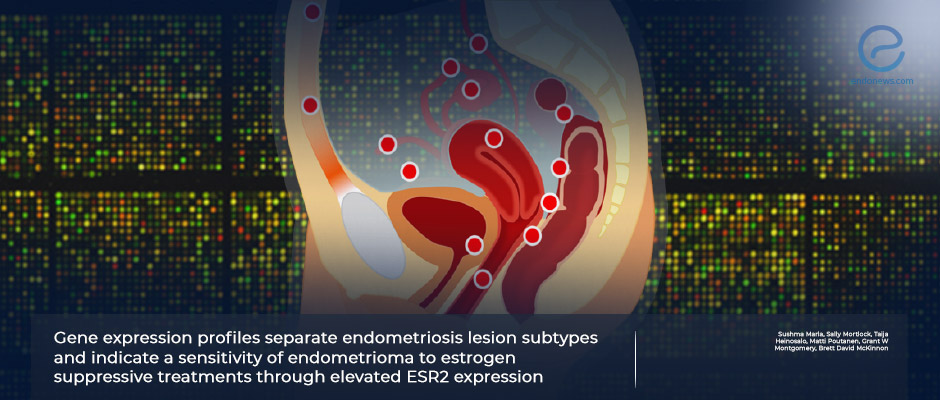Gene Expression Profiles of Endometriosis and Personalized Treatment
Dec 25, 2023
Gene Expression Study Sheds Light on Endometriosis Variations and Hormonal Treatment Effectiveness
Key Points
Highlights:
- Although hormones are recommended first-line treatment, but their efficacy and side effects vary probably because of hormone receptor expression in endometriotic lesions and their ability to respond is conflicting.
Importance:
- Understanding the gene expression profiles of different lesions and their response to hormonal treatment would allow to identify those whou would benefit and can help personalized treatment.
What's done here:
- The researchers analyzed gene expression data from endometriosis lesions of different subtypes: endometrioma, superficial peritoneal lesions, and deeply infiltrating lesions.
- The data was taken from the University of Turku, and contains gene expression for 283 samples from the endometrium of patients with (n = 64) or without (n = 41) endometriosis and endometriosis (n = 178).
- Principal component analysis, differential gene expression, and gene correlation analyses were performed to assess the impact of menstrual stage, lesion subtype, and hormonal treatment on gene expression.
- Hormonal treatment of patients was noted, and the cycle stage of endometrium specimens was determined pathologically.
Key Results:
- Gene expression profiles with endometrioma showed significant differences from both superficial peritoneal lesions and deeply infiltrating lesions but no change was seen related to menstrual cycle stages.
- The gene expression profile in endometrioma was altered by hormonal suppression medication, but no such effect was observed in peritoneal lesions and deeply infiltrating lesions.
- The gene which encodes for the estrogen receptor ESR2 was differentially expressed in endometrioma, and the genes correlated with ESR2 varied significantly between medicated and non-medicated endometrioma samples.
Limitations:
- The study was based on gene expression data, and further research is needed to investigate the functional implications of the observed gene expression differences.
- The sample sizes for each lesion subtype may affect the generalizability of the findings.
- The study focused on the impact of hormonal treatment, and other factors contributing to treatment response were not extensively explored.
Lay Summary
The study lead by Dr.McKinnon from the Institute for Molecular Bioscience, The University of Queensland, Australia, aimed to understand the gene expression profiles of different endometriosis lesion subtypes and their response to hormonal treatment.
The researchers analyzed gene expression data from endometrioma, superficial peritoneal lesions, and deeply infiltrating endometriosis..
The authors found that gene expression profiles could differentiate between the lesion subtypes, with endometrioma showing significant differences compared to superficial peritoneal lesions and deeply infiltrating lesions. Additionally, hormonal suppression medication affected the gene expression profile in endometrioma but not in peritoneal lesions or deep infiltrating endometriosis.The gene ESR2, which codes for the estrogen receptor, was differentially expressed in endometrioma, and the genes correlated with ESR2 varied significantly between medicated and non-medicated endometrioma samples.
These findings suggest the potential for personalized treatment options based on pre-surgical diagnoses. However, further research is needed to validate and explore the functional implications of these gene expression differences and to consider other factors influencing treatment response.
This paper was published in the November 2023 issue of BMC Medicine.
Research Source: https://pubmed.ncbi.nlm.nih.gov/37996888/
endometriosis gene profiling

